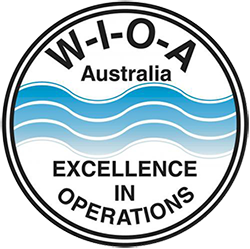Your shower time should be refreshing and relaxing. If you step out of the shower feeling dry, itchy, or like your hair isn’t as soft as it should be, something is definitely not right!
The culprit could be hiding in your water. Unfiltered shower water can contain chlorine, heavy metals, and other impurities that can affect your skin, hair, and overall wellbeing.
A showerhead filter is the answer! It reduces harsh impurities, helps keep your skin hydrated, your hair softer, and your shower time soothing—just the way it should be!
Want to know more? Stick around! When it comes to water filtration, UV Guard is a trusted source of knowledge. With years of experience in safe water solutions, we understand the impact of water quality on your health. That’s why we’re dedicated to providing reliable information about clean, healthy water.
What is a Showerhead Filter?
A showerhead filter is a simple device that attaches to your shower to clean the water before it
reaches you. It works by trapping, neutralising, or reducing chlorine, heavy metals, and other
unwanted particles in your water supply.
Most showerhead filters simply screw on, and the only maintenance required is
replacing the filter cartridge at least twice a year.
Common showerhead filters include
Activated Carbon Filters: Carbon absorbs chlorine, chemicals, and some heavy
metals. Best for reducing unpleasant odours and improving water clarity.
KDF (Kinetic Degradation Fluxion) Filters: Made of copper and zinc to reduce
chlorine, heavy metals, and bacteria.
Vitamin C Filters: Ascorbic acid (Vitamin C) neutralises chlorine and chloramine.
Multi-Stage Filters: Combining different filtration methods (like carbon, KDF, and
ceramic balls) to target various contaminants.
Sediment Filters: Catching larger particles like rust, dirt, and sand. Useful if you
have older pipes or well water.
Why You Need a Showerhead Filter
To Combat Contaminants in Your Shower Water
Although Australian residential water goes through filtration, disinfection, and other processes
to meet safety standards before reaching homes, some chemicals and minerals remain in the water.
Chlorine: A disinfectant added to tap water to kill bacteria and other pathogens.
While it helps keep water safe to drink, it doesn’t just disappear when it reaches your shower.
Chloramine: A combination of chlorine and ammonia used in some water supplies
as a longer-lasting disinfectant. It’s more stable than chlorine, meaning it stays in the water
for longer.
Hard Water Minerals: Calcium and magnesium, which come from dissolved rock and
sediment as water moves through natural underground reservoirs and waterways, make water
“hard”.
Other Chemicals: Small amounts of pesticides and industrial byproducts can
sometimes be present, depending on the local water source and treatment process.
Heavy Metals: Lead and mercury from old plumbing or industrial and agricultural
runoff can be found in some residential water.
The Effects of Water Contaminants
How do those contaminants impact your health and hygiene?
Chlorine strips away natural oils, leaving skin dry and itchy, and worsening
skin conditions like eczema, psoriasis, and dermatitis. It can also weaken hair, making
it brittle and more prone to breakage.
Chloramine is harsher on sensitive skin than chlorine and can cause more irritation and dryness.
It also produces fumes in hot showers that can irritate the eyes and lungs.
Hard water minerals leave residue buildup that makes hair feel dull, lifeless, and weighed down,
and contributes to dandruff and scalp itchiness. These minerals can also make it harder for
soap and shampoo to lather properly, leaving skin feeling less clean.
Pesticides and industrial byproducts may contribute to skin irritation, dryness, and long-term
exposure concerns, such as hormonal imbalances and allergic reactions.
Lead and mercury can be absorbed through the skin in small amounts and may contribute to
scalp and skin issues over time.
To Improve Your Skin, Hair, and Overall Health
Trapping, neutralising, and reducing contaminants in your shower water helps protect your
skin, hair, and overall wellbeing.
What are the benefits you can experience from a showerhead filter?
Softer, More Hydrated Skin: Removing harsh chemicals reduces dryness, itchiness, and
irritation.
Relief for Sensitive Skin Conditions: Reducing chlorine and other irritants helps
ease flare-ups of eczema, psoriasis, and dermatitis.
Stronger, Healthier Hair: Preventing chlorine and hard water minerals from
stripping moisture, leaving hair softer, shinier, and more manageable.
A Healthier Scalp: Reducing buildup that can lead to dandruff and itchiness.
Better Soap and Shampoo Performance: With fewer minerals and chemicals in the
water, soap and shampoo lather better and provide a deeper clean.
Choosing the Right Showerhead Filter for Your Needs
The answers to the following questions will help you choose the right showerhead filter.
What type of showerhead filter is best for me?
It depends on what’s in your water. Check your local water report online or use a home test kit to
determine the best filter for your home.
An activated carbon or vitamin C filter is an excellent choice for reducing or neutralising
chlorine. If your water has chloramine, a vitamin C filter will also handle this. For hard water
minerals and heavy metals, a multi-stage or KDF filter works best.
Will a showerhead filter fit my shower?
Most showerhead filters are designed to fit standard Australian showers. They usually attach
easily between the shower arm and your existing showerhead. Some models even come as all-in-one
filtered showerheads.
How often do I need to replace the filter?
It depends on the type of filter and how much water you use. Most filters last between three to
six months, but some may need replacing sooner in areas with heavily treated or hard water.
Will a showerhead filter reduce water pressure?
A high-quality showerhead water filter shouldn’t noticeably reduce water pressure. However, if
you have low water pressure to begin with, choosing a filter with a strong flow rate is important.
Typically, a filter with a flow rate of at least 9 litres per minute (L/min) will maintain
consistent water pressure.
Is a showerhead filter enough for my water filtration needs?
You can install a filtration system directly into your home’s main water supply line if you want disinfected water throughout your home. You can pair this with a showerhead water filter for an extra layer of protection against any remaining chlorine, chloramine, and heavy metals.
FAQs About Showerhead Filters
Elevate Your Shower Experience with UV Guard
With a showerhead filter, every shower will become a luxurious experience that leaves your skin and hair not just clean but revitalised, hydrated, and feeling their absolute best.
Do you want all the water in your home to be cleaner and healthier for your family? You need a UV Guard water disinfection system or hard water conditioner installed directly into your home’s water supply line.
Contact UV Guard today to learn more about our innovative and sustainable residential water treatment options. Fill out this online form, and a friendly UV Guard team member will be in touch soon!
AWA Water Journal – June 2015 – New power supply boxes make mobile and off-grid water disinfection possible
Your Content Goes Here Your Content Goes Here UV-Guard’s NEW PLC controller has been mentioned in the June edition of the Australian Water Association (AWA) Water journal. The following text has been taken from the publication: “Off-grid and mobile water disinfection is now possible thanks [...]
Is using UV a better way to reduce chlorine levels in water?
Share Your Content Goes Here Your Content Goes Here Chlorine reduction can be an expensive and time-consuming ordeal for many industrial operations, but one company is honing in on helping businesses attain ultrapure water for processes and production. UV Guard [...]
Aquafides UV water disinfection systems
Share Your Content Goes Here Your Content Goes Here Aquafides UV water disinfection systems are validated to meet the stringent global performance benchmarks as part of DVGW, ÖVGW and SVGW certification. The DVGW (German Technical and Scientific Association for Gas [...]
UV water disinfection is the key to successful beer brewing
Share Your Content Goes Here Your Content Goes Here UV Guard supports Sydney-based brewers Malt Shovel with the management of its microbial-free beer production processes. Two ultraviolet (UV) disinfection systems are installed at the brewery. One is designed to disinfect [...]
Newsletter
Stay up-to-date with our very latest news, technology, offers and events.











